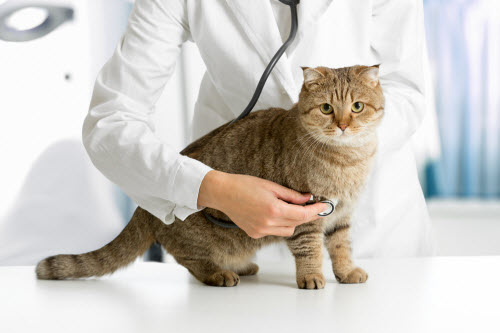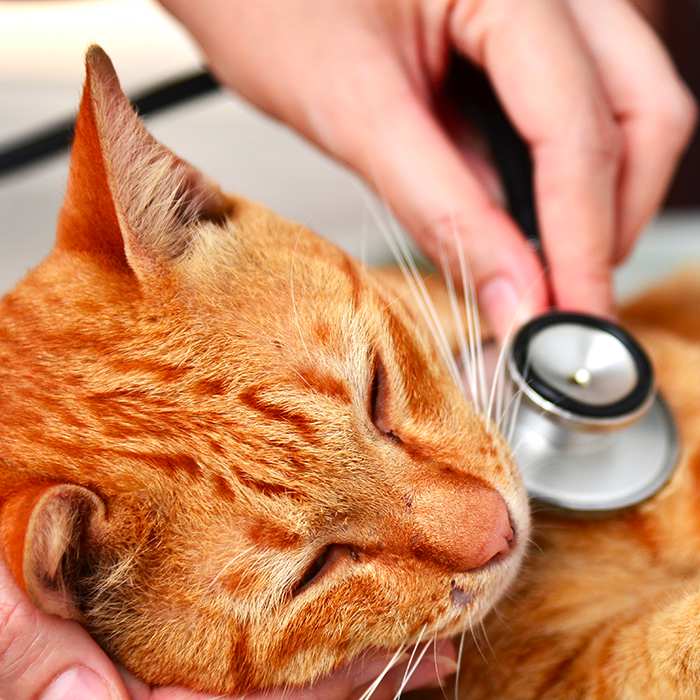Cat sickness prevention
Understanding Common Feline Health Issues
Feline health issues can arise in cats of all ages and breeds. One common health concern is dental problems. Cats can develop tartar build-up, gum disease, and even tooth decay. This can lead to pain, difficulty eating, and bad breath. Regular dental care, including brushing their teeth and providing dental treats, can help prevent these issues. If your cat shows signs of dental problems, such as drooling, pawing at their mouth, or a change in appetite, it is important to seek veterinary care.

Another health issue that can affect cats is obesity. Just like humans, cats can become overweight or obese if they consume more calories than they burn. This can lead to a range of health problems, including diabetes, arthritis, and heart disease. To prevent obesity, it is essential to provide your feline friend with a balanced diet and ensure they have plenty of opportunities for exercise. Feeding them high-quality cat food and avoiding excessive treats can help keep their weight in check. If you notice your cat gaining weight, consult with your veterinarian to develop a weight management plan.
Maintaining a Balanced Diet for Your Feline Friend
Feeding your feline friend a balanced diet is essential for their overall health and well-being. Cats are obligate carnivores, which means their diet should consist primarily of meat. This is because they require specific nutrients, such as taurine and arachidonic acid, which are vital for their growth and development. It is important to choose high-quality cat food that contains a sufficient amount of these nutrients to meet your cat’s dietary needs.
When selecting cat food, it is crucial to read the labels carefully. Look for key ingredients like real meat, poultry, or fish as the primary protein source. Avoid cat foods that are filled with fillers, artificial colors, and preservatives, as these can be harmful to your cat’s health. It is also important to consider your cat’s age, activity level, and any specific health conditions they may have when choosing the right type of food.
In addition to the type of food, portion control is equally important in maintaining a balanced diet for your feline friend. Follow the feeding guidelines provided by the manufacturer and adjust the portions based on your cat’s individual needs. Overfeeding can lead to obesity and associated health problems, while underfeeding can result in malnutrition. Remember, regular meals and a consistent feeding schedule are important for your cat’s digestive health. Providing fresh water at all times is also crucial to keep your feline friend properly hydrated.
A balanced diet is the foundation of your cat’s health. Along with regular veterinary check-ups, ensuring they receive proper nutrition is key to preventing various health issues and promoting a long and happy life for your feline friend.
The Importance of Regular Veterinary Check-ups
Regular veterinary check-ups are a crucial aspect of maintaining your cat’s overall health and well-being. Even if your feline friend appears to be healthy, it is important to schedule routine visits to the veterinarian. These check-ups allow the veterinarian to assess your cat’s current health status, identify any potential health issues, and provide preventive care measures.
During a regular veterinary check-up, the veterinarian will conduct a thorough physical examination of your cat. This examination includes evaluating their body condition, checking vital signs such as heart rate and temperature, examining the eyes, ears, teeth, and gums, and feeling for any abnormalities or lumps. Additionally, routine blood tests and fecal examinations may be recommended to screen for common feline health issues, such as kidney disease, diabetes, or intestinal parasites. By detecting and addressing potential health concerns early on, regular veterinary check-ups play a crucial role in preventing more serious and costly health issues in the future.
Hygiene and Grooming Practices for a Healthy Cat
Proper hygiene and grooming practices are essential for maintaining the health and well-being of your feline friend. Regular grooming not only keeps your cat looking clean and beautiful but also helps to prevent the development of various health issues. One important aspect of grooming is brushing your cat’s fur regularly. This helps to remove dirt, debris, and loose hair, preventing matting and reducing the risk of skin infections. Additionally, regular brushing can reduce hairballs in your cat by preventing them from ingesting excessive amounts of hair during grooming. Remember to use a brush that is suitable for your cat’s fur type to avoid any discomfort or skin irritation.
In addition to brushing, it is important to keep your cat’s ears and eyes clean. Regularly inspect your cat’s ears for any signs of wax buildup or redness, which might indicate an ear infection. If needed, gently clean the outer part of the ear using a cotton ball moistened with a veterinarian-recommended ear cleaner. When it comes to your cat’s eyes, use a damp cloth or cotton ball to gently wipe away any discharge or crust. If you notice excessive tearing, redness, or swelling, it is important to consult your veterinarian as it could be a sign of an underlying health issue.
Identifying and Managing Parasitic Infections in Cats
Parasitic infections in cats can cause a range of health issues and discomfort for our feline friends. It is important for cat owners to be able to identify the signs of these infections and take appropriate measures to manage them.
One of the most common signs of a parasitic infection in cats is excessive itching or scratching. Cats may also display hair loss, skin redness, or the presence of small bumps or lesions on their skin. In some cases, cats may also experience gastrointestinal symptoms such as vomiting or diarrhea. If you notice any of these signs in your cat, it is important to consult a veterinarian for a proper diagnosis and treatment plan.
Managing parasitic infections in cats involves a multi-faceted approach. The first step is to prevent the infestation in the first place by regularly administering preventive medications recommended by your veterinarian. These medications can protect your cat against fleas, ticks, heartworms, and other common parasites. Additionally, it is important to keep your cat’s living environment clean and free from potential sources of infection. Regularly cleaning the litter box, washing bedding, and vacuuming the house can help eliminate parasites and decrease the risk of reinfestation.
Vaccinations: Protecting Your Cat from Preventable Diseases
Vaccinations are an integral part of keeping your cat safe and healthy. They play a crucial role in protecting felines from preventable diseases. By administering the necessary vaccines, you can provide your furry friend with immunity against serious illnesses that can greatly impact their quality of life.
One of the most well-known and essential vaccines for cats is the FVRCP vaccine. This vaccine protects against three common feline viruses: feline viral rhinotracheitis, calicivirus, and panleukopenia. Feline viral rhinotracheitis causes respiratory infections, while calicivirus leads to oral and respiratory disease. Panleukopenia, also known as feline distemper, is a highly contagious and potentially fatal virus that affects the cells in a cat’s bone marrow and intestines. By vaccinating your cat against these viruses, you can significantly reduce the risk of your feline companion falling ill to these dangerous diseases.
Promoting a Safe and Stress-free Environment for Your Cat
Creating a safe and stress-free environment for your cat is crucial for their overall well-being and happiness. One of the first steps in achieving this is to provide a calm and peaceful living space. Cats are creatures of habit and thrive in a routine. Establishing a consistent schedule for feeding, playtime, and rest will help reduce stress and anxiety. Additionally, ensure that your home is free from any potential hazards that could harm your cat, such as toxic plants, chemicals, or small objects that they could ingest.
Another important aspect of promoting a safe and stress-free environment for your cat is to provide them with a designated space that they can call their own. This could be a comfortable bed, a cozy corner with a scratching post, or a cat tree that allows them to climb and observe their surroundings. Having a space that they can retreat to when they need some alone time will help alleviate stress and make them feel secure. Additionally, providing interactive toys and engaging in playtime sessions will not only keep your cat mentally stimulated but also strengthen the bond between the two of you.
Recognizing the Signs of Illness in Cats
Recognizing the Signs of Illness in Cats can be crucial in ensuring the well-being of your feline companion. Cats are masters at hiding their discomfort, making it essential for cat owners to be vigilant and attentive to any subtle changes in their pet’s behavior. One noticeable sign of illness is a sudden change in appetite. If your cat refuses to eat or has a significant decrease in food intake, it could be an indication of an underlying health issue. Similarly, excessive thirst should also be noted, as it may be a symptom of certain conditions such as diabetes or kidney disease.
In addition to changes in eating and drinking habits, any alteration in a cat’s litter box routine can be an indicator of illness. If your cat suddenly starts urinating outside the litter box or is frequently using the box but producing only small amounts of urine, it may be time to consult with a veterinarian. Furthermore, any drastic change in litter box habits, such as diarrhea or constipation, should not be ignored, as it could suggest digestive problems or intestinal blockages. Being attentive to your cat’s bathroom behaviors is crucial for early detection of potential health concerns.
How can I identify common feline health issues?
Understanding Common Feline Health Issues provides information on the signs and symptoms to look out for when it comes to your cat’s health.
What should I feed my cat to maintain a balanced diet?
Maintaining a Balanced Diet for Your Feline Friend offers guidance on providing a nutritious and well-balanced diet for your cat.
How often should I take my cat for veterinary check-ups?
The Importance of Regular Veterinary Check-ups emphasizes the significance of regular visits to the veterinarian to ensure your cat’s overall health and early detection of any potential issues.
What hygiene and grooming practices should I follow for my cat?
Hygiene and Grooming Practices for a Healthy Cat offers tips and recommendations for maintaining proper hygiene and grooming routines to keep your cat in good health.
How can I identify and manage parasitic infections in cats?
Identifying and Managing Parasitic Infections in Cats provides information on different types of parasites, their signs, and effective management strategies.
Why are vaccinations important for cats?
Vaccinations: Protecting Your Cat from Preventable Diseases explains the importance of vaccinations in preventing common and potentially harmful diseases in cats.
How can I create a safe and stress-free environment for my cat?
Promoting a Safe and Stress-free Environment for Your Cat offers guidance on creating a comfortable and secure living environment for your furry friend.
What are the signs of illness in cats that I should watch out for?
Recognizing the Signs of Illness in Cats provides a comprehensive list of common signs of illness in cats to help you identify when your cat may be unwell.







